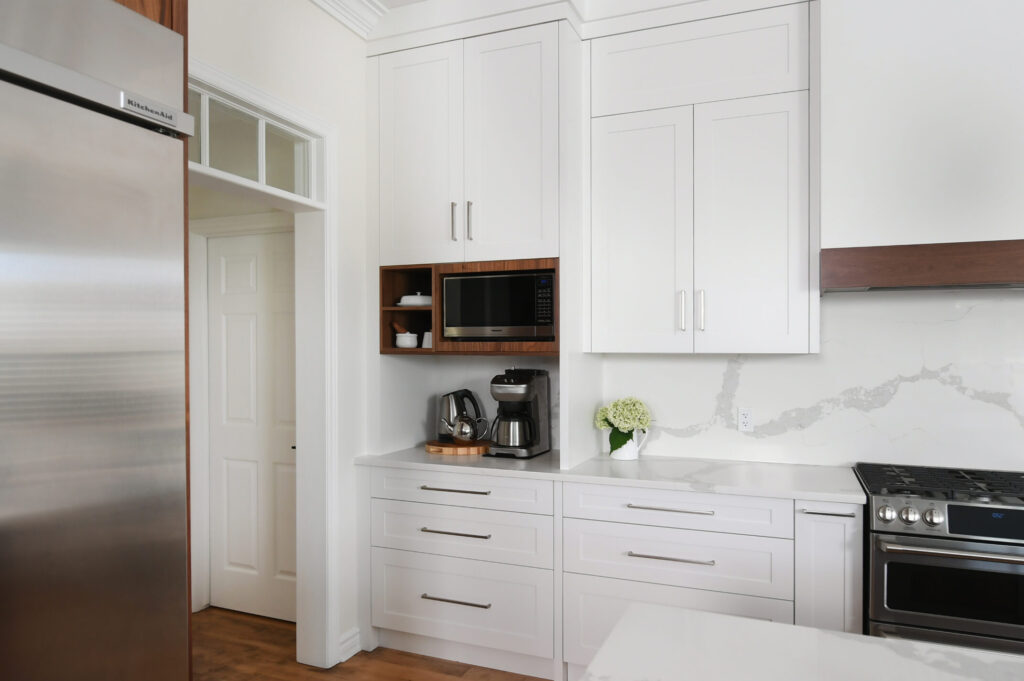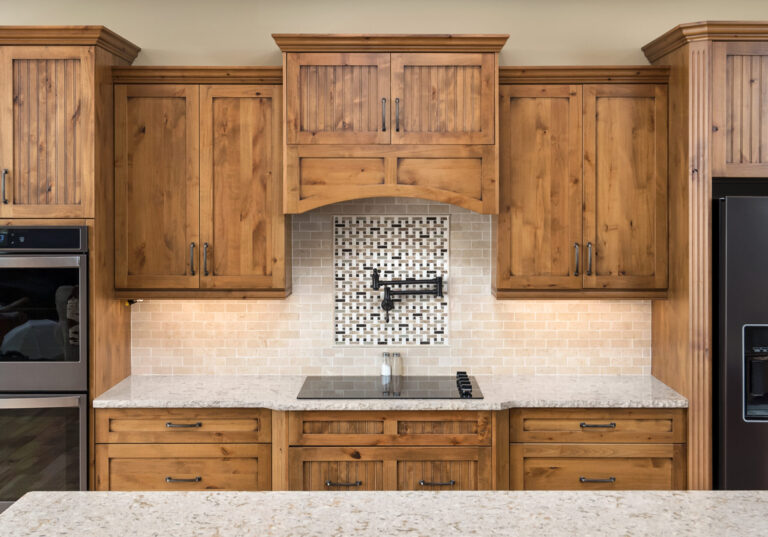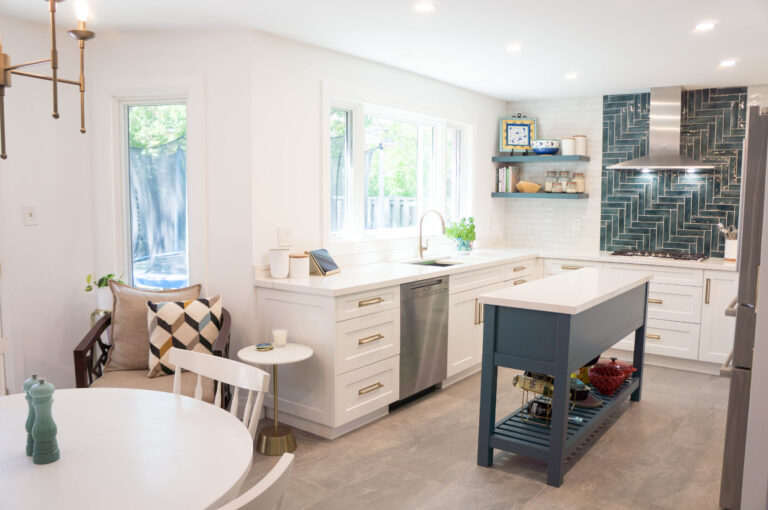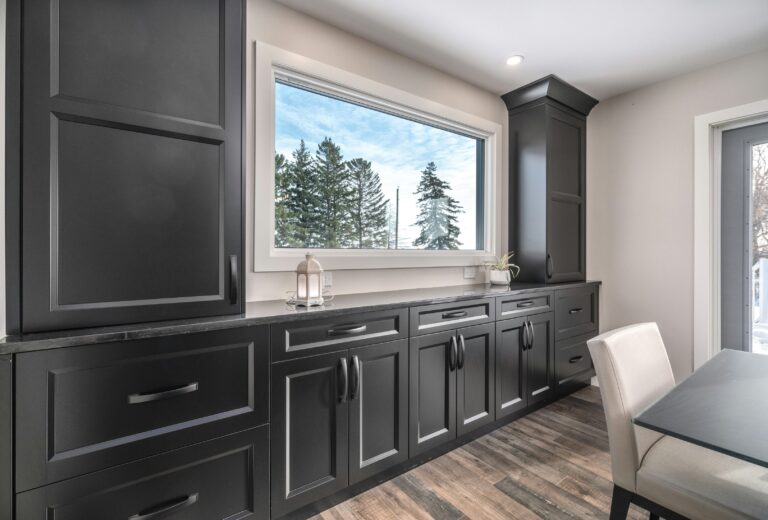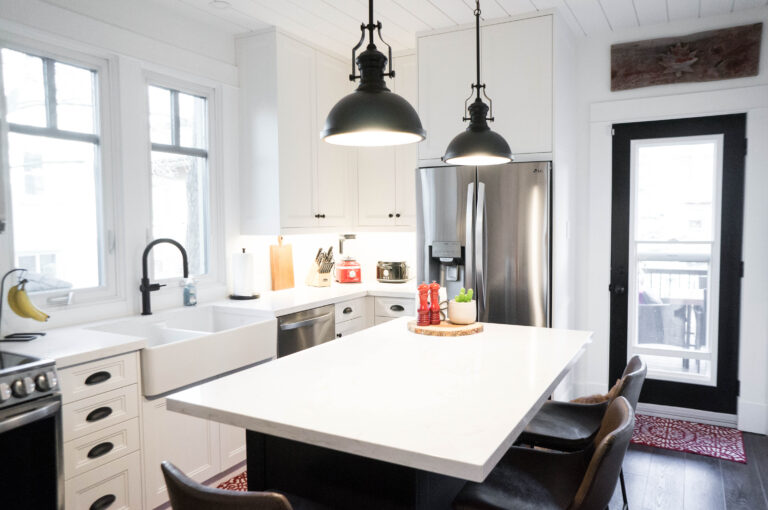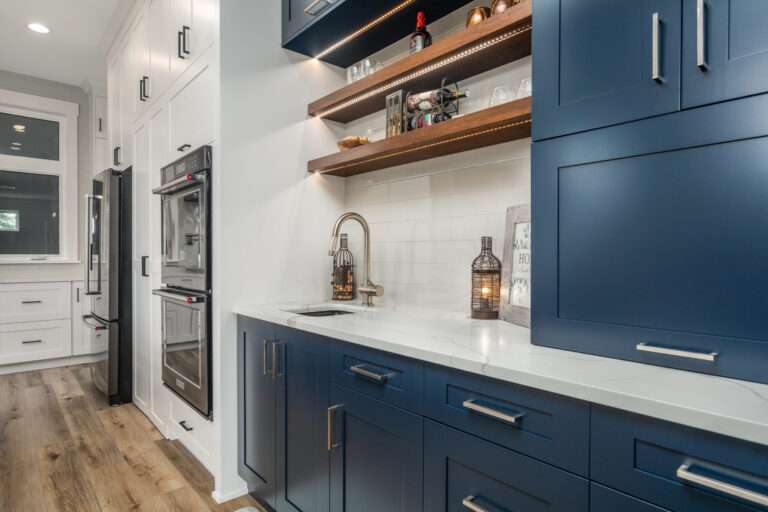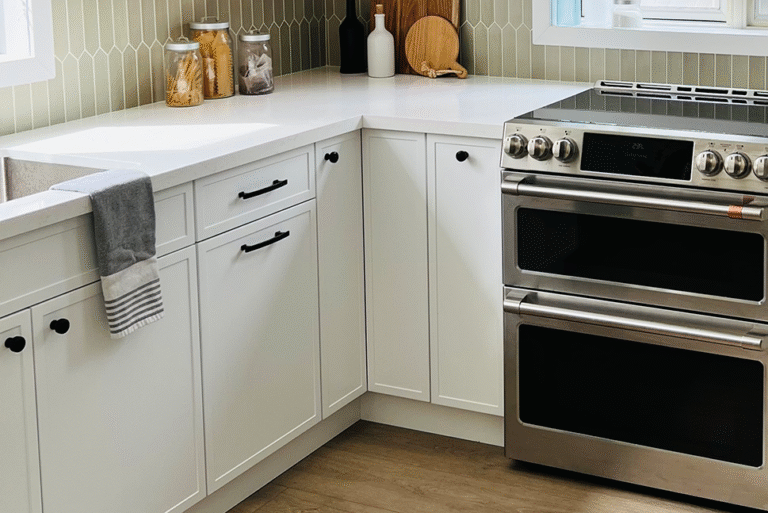Where you put your built-in microwave affects the way your kitchen looks, how safe it feels, and how well your daily routine flows.
Because modern kitchens are designed differently than they were even ten years ago, the built-in microwave can’t just be tucked in anywhere.
Families spend more time cooking together, kids want independence, and homeowners expect their kitchen to look polished.
Here’s our guide on where we recommend putting your built-in microwave.
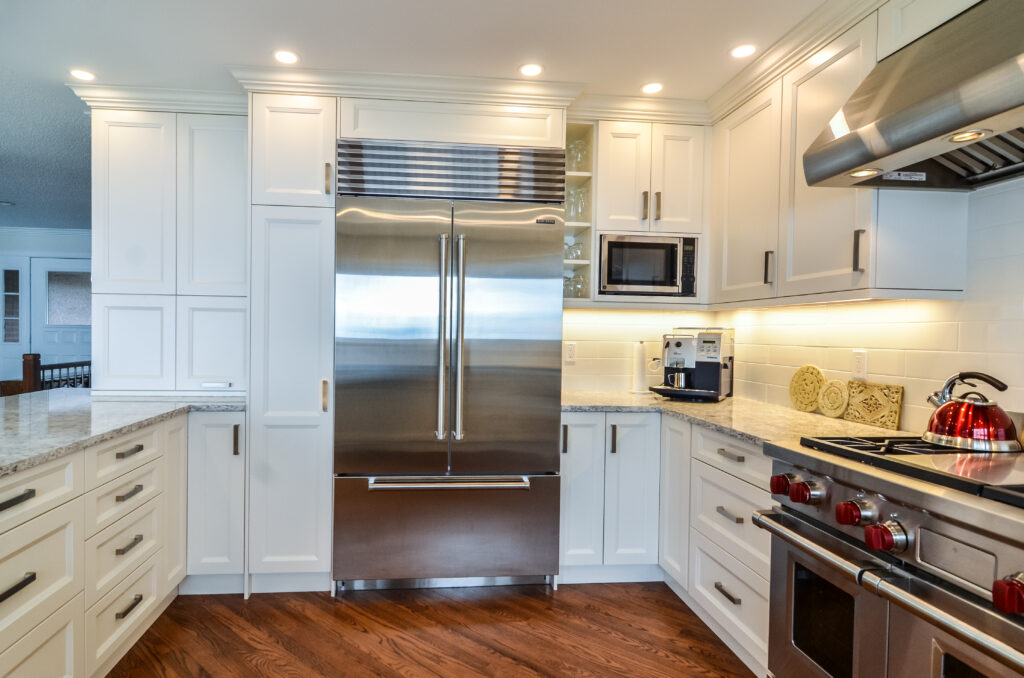
Why Built-In Microwave Placement Matters
The microwave is used daily in most households. If it’s placed too high, too low, or too far from where you cook, it gets frustrating.
Safety counts. Lifting hot dishes over your head or leaning down awkwardly increases the risk of spills and burns.
Workflow counts too. The smoother your prep, cooking, and cleanup zones connect, the easier your kitchen is to use.
When you plan placement thoughtfully, the built-in microwave blends into your kitchen and makes it more functional.
The Traditional Choice: Built-In Microwave Above the Range
For years, putting the microwave above the range was standard. It saved counter space and worked in compact kitchens.
That setup still has advantages. It frees up work surfaces and can create a neat, built-in look with cabinetry.
But there are clear downsides. Over-the-range microwaves don’t vent as well as a dedicated hood. They also put hot dishes at head height, which isn’t safe or comfortable for everyone.
And visually, they break up the clean lines many people want in modern kitchen design.
Built-In Microwave Options That Work Better Today
The better options?
- Tall Cabinet or Wall Cabinet
- Microwave in an Island or Base Cabinet
- Appliance Garage or Niche
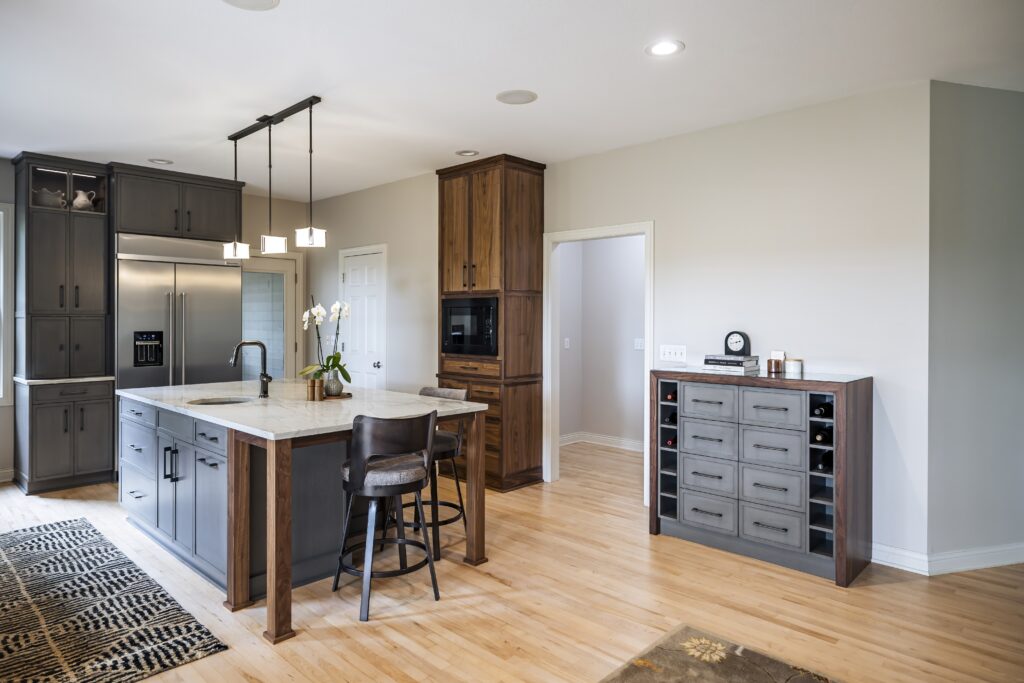
Tall Cabinet or Wall Cabinet
Placing a built-in microwave in a tall cabinet, often stacked with a wall oven or pantry, is one of the most common solutions today.
It keeps counters clear and looks integrated. You also avoid bending or reaching overhead.
The trade-off is storage space. You give up some shelving, but for most homeowners, the convenience is worth it.
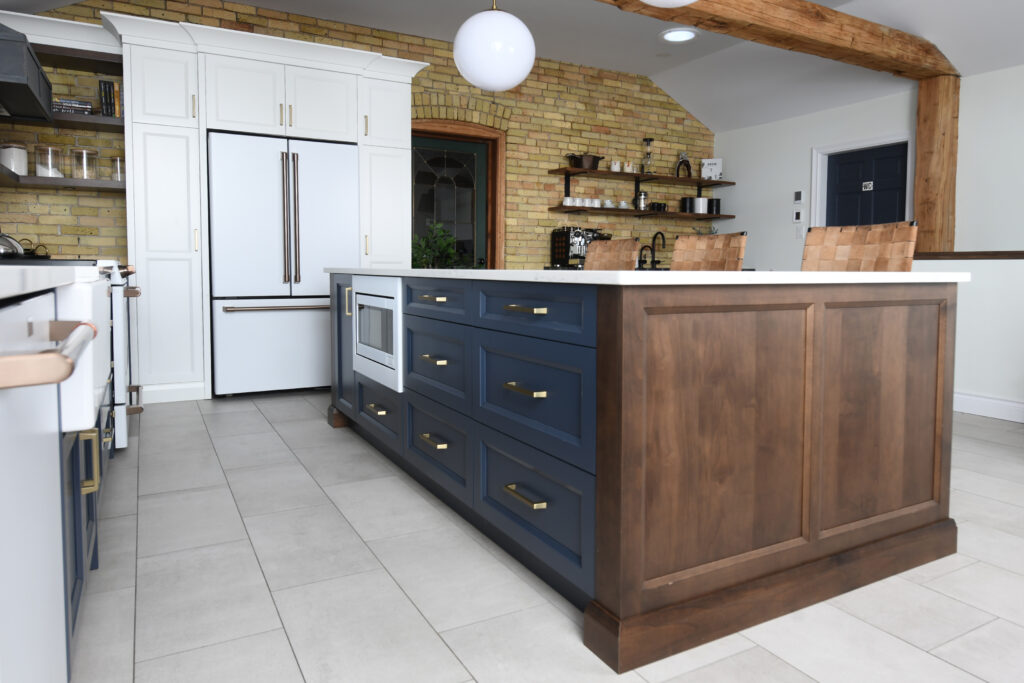
Microwave in an Island or Base Cabinet
Microwaves in an island or base cabinet are becoming a go-to choice.
It’s safer and more comfortable. Hot food stays at or closer to counter level, and kids or shorter adults can use it easily. For families, that access makes a big difference.
However, if you are taller, this may not be as ergonomic depending on your countertop height.
A positive for this option is it’s a bit more hidden from view, especially when the microwave is tucked in an island on the working side, leaving the view of the kitchen clean without the added appliance.
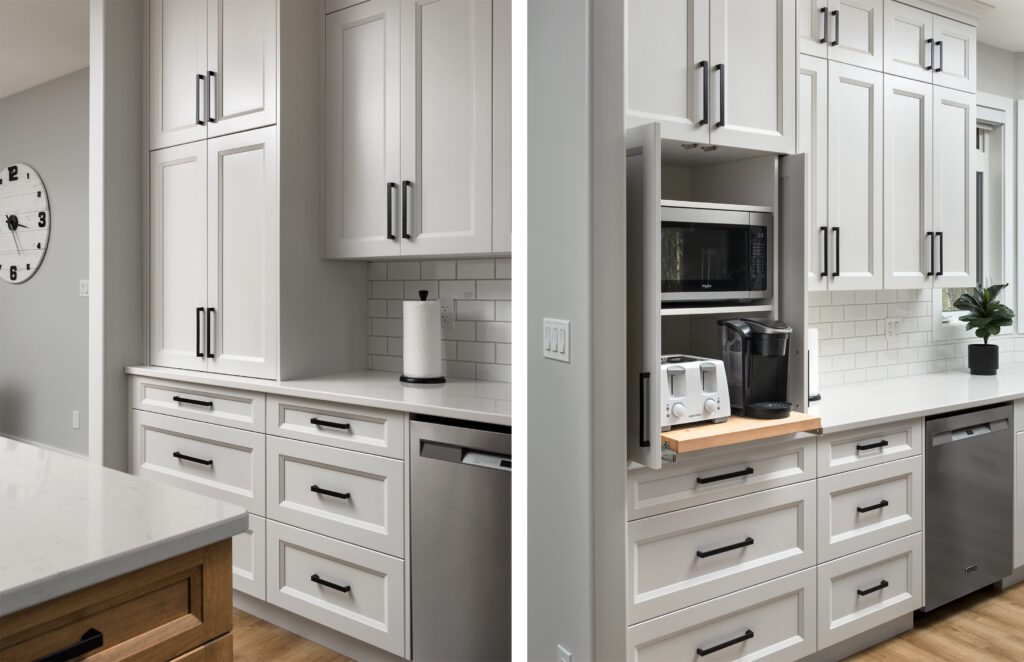
Appliance Garage or Niche
An appliance garage is a dedicated space, often behind cabinet doors, where a built-in microwave can be hidden.
It’s a smart option in open kitchens where you want a clean, uninterrupted look.
The main consideration is planning. You’ll need to set aside cabinet space during the design stage. If you value uncluttered counters and streamlined style, this option pays off.
The downside is having to open a door or two to use your microwave, but the trade off for a pretty kitchen may be worth it.
Pros and Cons of Common Built-In Microwave Locations
Above the range: saves counter space, good for small kitchens, but weak ventilation and awkward to reach.
Tall cabinet or wall cabinet: ergonomic, polished look, but takes up vertical storage.
Microwave in island: safest and easiest to access, but may be to low for some.
Appliance garage: hidden and sleek, but uses up cabinet space and requires opening to use appliance.
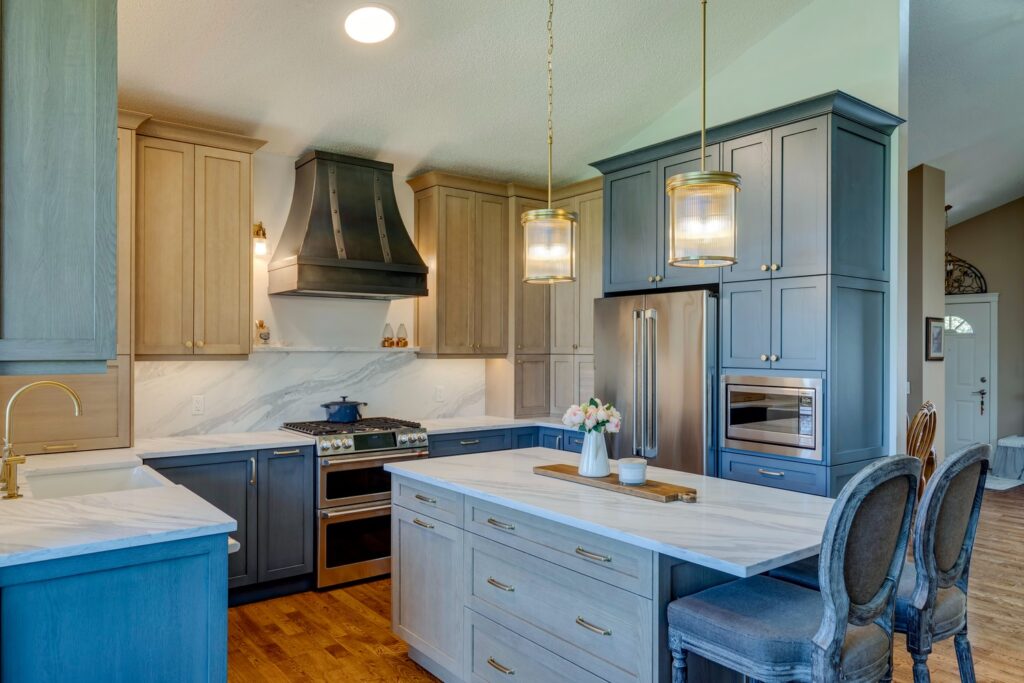
What Our Kitchen Designers Recommend
Designers often steer clients away from the over-the-range setup. A strong range hood is better for ventilation, and most homeowners prefer the clean lines it allows.
Statement range hoods are a big trend right now, so that is another reason to skip a microwave range hood combo. Here’s how to find one that matches your style.
Tall cabinets, islands, and appliance niches have become the new standards. These options blend better with cabinetry, improve safety, and keep the kitchen looking intentional.
The right choice depends on how you cook, who’s using the kitchen, and how much space you have to work with.
How to Decide on Built-In Microwave Placement
Start with layout. In a galley kitchen, tall cabinets may make the most sense. In an L- or U-shaped kitchen, a base cabinet or island can be easier to reach. An island built-in works well if you want the microwave at the center of activity.
Think about how often you use it. If the microwave is only for the occasional reheat, you can tuck it into a less prominent spot. If it’s used several times a day, convenience should come first.
Consider who uses it most. Children, older adults, and multiple cooks all benefit from a drawer or lower placement.
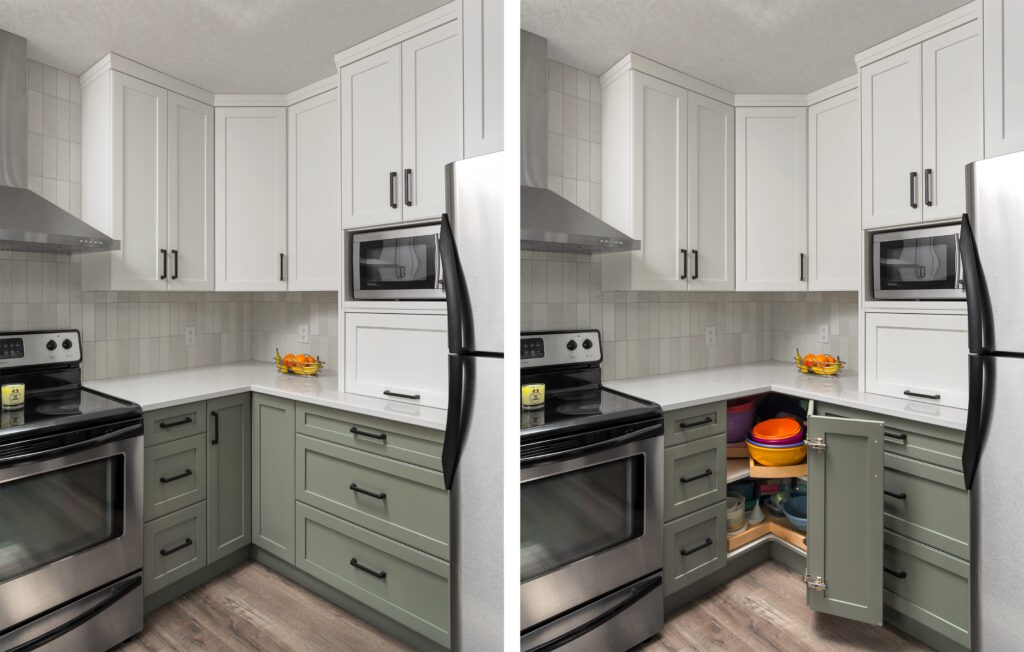
The built-in microwave is still one of the most useful appliances in your kitchen.
The best placement is the one that feels natural in your kitchen. When you think about safety, design, and everyday use, you’ll find the spot that makes the built-in microwave work for you.


